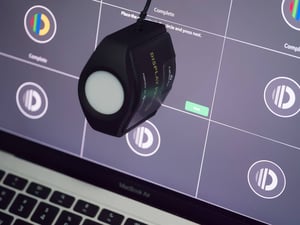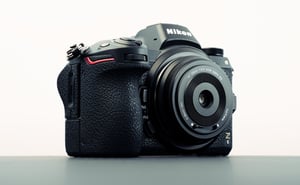One of the coolest things about working at Photography Life is being around a bunch of people who are really passionate about their photography! And although gear, reviews, and just plain maintaining a small website sometimes takes more time than photography itself, I thought I'd look back at our 2025...
Post Archive By Jason Polak
Hohem iSteady MT2 Video Gimbal Review
The Hohem iSteady MT2 is a 653g, 3-axis video gimbal. It can hold a lighter camera or a phone up to 1.2kg, and it can provide more stabilization for video compared to the IBIS systems on cameras. How does it perform, and is it the right gimbal for you? Read...
Calibrite Display Pro HL and Profiler Review
One of the most fun steps in photography is post-processing. But if your computer monitor isn't displaying accurate colors, then all of your edits may be wrong - and one of the least fun steps in photography is re-doing a bunch of work you already did! That's why proper color...
The Red-Winged Blackbird
Some say flowers herald the coming of spring, but I feel it is the song of the Red-winged Blackbird that signifies the change of seasons. I still remember their beautiful call one very cold morning near the end of winter, before the growth of any plant or the disappearance of ice.
Viltrox AF 28mm F4.5 Chip Review
Viltrox has just announced the Viltrox AF 28mm f/4.5 Chip lens, a fixed-aperture autofocus lens for the Nikon Z mount, which has been available for the Sony E mount for some time. This pancake lens is pretty small, inexpensive, and has some interesting features all for $99. In this review,...
Viltrox AF 50mm f/2 Air Review
Sometimes I feel haunted by 50mm lenses! My first prime lens was a Pentax 50mm f/1.7, and later my first Nikon lens was the 50mm f/1.8G. Although I think 50mm is a little on the wide side for my style, my first Nikon Z lens was also a 50mm. So,...
K&F Concept Nano-X UV Filter Review
UV filters are perhaps the most popular type of lens filter, with many photographers using them to protect the front element of an expensive lens. Unfortunately, there's a huge range in the quality of UV filters out there. I wanted to put together a methodology to test UV filters, and...
Venus Laowa 15mm f/4.5 Macro Announced
Venus Laowa has just released the 15mm f/4.5 1:2 macro lens available for Nikon Z, Canon EF, Sony E, Nikon F, Canon RF, and L-mounts. Venus is well-known for making a variety of unique macro lenses, and this 15mm f/4.5 macro is another one. It has a maximum magnification of...
K&F Concept Nano-X Variable ND Filter Review
A neutral density (ND) filter reduces the amount of light entering your lens. Since photographers typically want more light, blocking some light sounds like a crazy idea. But for long exposure photography when you want to purposefully introduce motion blur, or for when you need a longer shutter speed for...
Photography: The Search for Ephemeral Worlds
The other day, I tried to list everything that contributes to a good photo. What are the crucial ingredients? High on the list were two things: thinking actively about composition in the field, and deliberate and careful post-processing. But what sustains the activity of going and taking those photos in...









